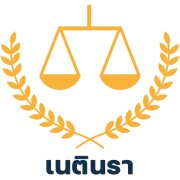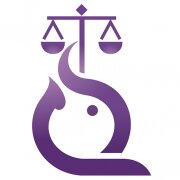Best Faith-Based Law Lawyers in Thailand
Share your needs with us, get contacted by law firms.
Free. Takes 2 min.
Or refine your search by selecting a city:
List of the best lawyers in Thailand
Legal guides written by Smart Legal Solutions:
- Main Legal Measures to Protect Foreign Investment in Thailand
- The importance of the geographical indications for the Thai economy
About Faith-Based Law in Thailand
Faith-Based Law in Thailand primarily refers to legal rules and regulations that are influenced by religious beliefs. In Thailand, where Buddhism significantly influences cultural and legal frameworks, Faith-Based Law may intersect with issues related to marriage, family law, and personal matters. Although Thailand predominantly follows civil law systems, aspects of Islamic law are integrated into family law provisions and are specifically applicable to the Muslim population in the southern provinces. Faith-Based Law in Thailand aims to respect the cultural diversity and religious practices of its citizens while harmonizing these with national laws.
Why You May Need a Lawyer
There are several situations where individuals might require legal assistance under Faith-Based Law in Thailand. These include navigating family law issues such as marriage, divorce, and inheritance among the Muslim communities in the southern provinces, where Islamic legal principles are recognized. Legal help might also be necessary in disputes where religious beliefs influence ethical or contractual obligations. Lawyers specializing in Faith-Based Law can also provide guidance in ensuring compliance with local laws while adhering to personal religious practices.
Local Laws Overview
The key aspects of local laws relevant to Faith-Based Law in Thailand include the recognition of Islamic law, particularly in the southern provinces of Pattani, Yala, Narathiwat, and Satun. Thai law accommodates certain religious practices in these regions, particularly concerning family and inheritance laws for the Muslim community. The Civil and Commercial Code outlines family law, but specific provisions allow Muslims to follow Islamic laws. It is crucial for individuals dealing with faith-based legal matters to understand how these provisions are implemented and where national laws take precedence.
Frequently Asked Questions
What is Faith-Based Law in Thailand?
Faith-Based Law in Thailand includes legal frameworks influenced by religious principles, primarily impacting family law within Muslim communities.
How does Faith-Based Law differ in the southern provinces of Thailand?
In the southern provinces, Islamic law is recognized in matters of family and inheritance for Muslims, integrating with national law to respect religious practices.
When is it necessary to consult a Faith-Based Law lawyer?
Consult a lawyer when dealing with marriage, divorce, inheritance, or ethical issues where religious practices influence legal obligations.
Is Islamic Law fully implemented in Thailand?
Islamic Law is not fully implemented nationwide but is recognized in specific legal aspects for Muslims in the southern provinces.
Can non-Muslims be subject to Faith-Based Law in Thailand?
Non-Muslims are generally subject to the civil law system, but faith-based considerations may arise in multi-faith family matters or business contracts involving ethical principles.
How does Faith-Based Law affect marriage contracts?
Muslims may follow Islamic marital laws in the southern provinces, but marriages must be registered to gain legal recognition under Thai law.
Are there any special inheritance rules under Faith-Based Law?
Yes, Muslims in southern provinces may follow Islamic inheritance rules alongside national laws, ensuring religious practices are respected.
Is polygamy allowed under Faith-Based Law in Thailand?
Polygamy is permitted for Muslim men under specific Islamic conditions in the southern provinces, subject to legal approval.
Can Faith-Based Law influence business contracts?
Ethical and faith-based considerations might influence business contracts, but they must comply with national laws to be legally binding.
What should I do if I encounter religious discrimination in legal settings?
Consult a lawyer to understand your rights, as Thai law prohibits discrimination based on religion and provides remedies for such grievances.
Additional Resources
For more information or assistance, consider reaching out to:
- The Ministry of Justice in Thailand for guidance on laws and legal frameworks.
- The Sheikhul Islam Office, which provides oversight on Islamic matters in Thailand.
- The Lawyers Council of Thailand for referral services to find qualified legal practitioners specializing in Faith-Based Law.
Next Steps
If you require legal assistance in matters of Faith-Based Law, consider the following steps:
- Identify your specific legal needs concerning faith-based issues.
- Research lawyers who specialize in Faith-Based and religious law in Thailand.
- Consult with a qualified lawyer to understand your legal standing and options.
- Gather all relevant documents and information pertinent to your case.
- Proceed with legal actions as advised by your legal counsel, ensuring compliance with both religious practices and national law.
Lawzana helps you find the best lawyers and law firms in Thailand through a curated and pre-screened list of qualified legal professionals. Our platform offers rankings and detailed profiles of attorneys and law firms, allowing you to compare based on practice areas, including Faith-Based Law, experience, and client feedback.
Each profile includes a description of the firm's areas of practice, client reviews, team members and partners, year of establishment, spoken languages, office locations, contact information, social media presence, and any published articles or resources. Most firms on our platform speak English and are experienced in both local and international legal matters.
Get a quote from top-rated law firms in Thailand — quickly, securely, and without unnecessary hassle.
Disclaimer:
The information provided on this page is for general informational purposes only and does not constitute legal advice. While we strive to ensure the accuracy and relevance of the content, legal information may change over time, and interpretations of the law can vary. You should always consult with a qualified legal professional for advice specific to your situation.
We disclaim all liability for actions taken or not taken based on the content of this page. If you believe any information is incorrect or outdated, please contact us, and we will review and update it where appropriate.
Browse faith-based law law firms by city in Thailand
Refine your search by selecting a city.

















